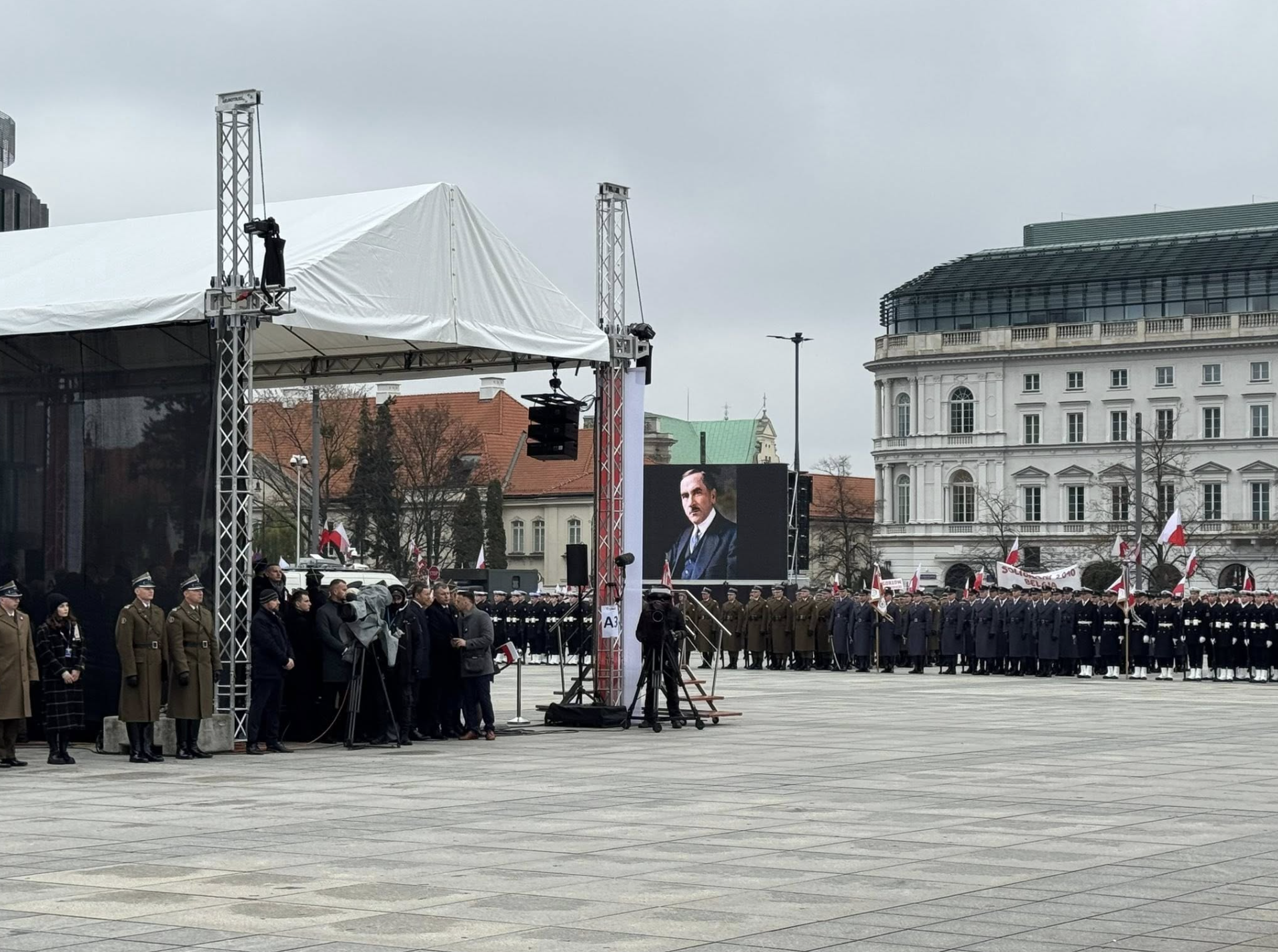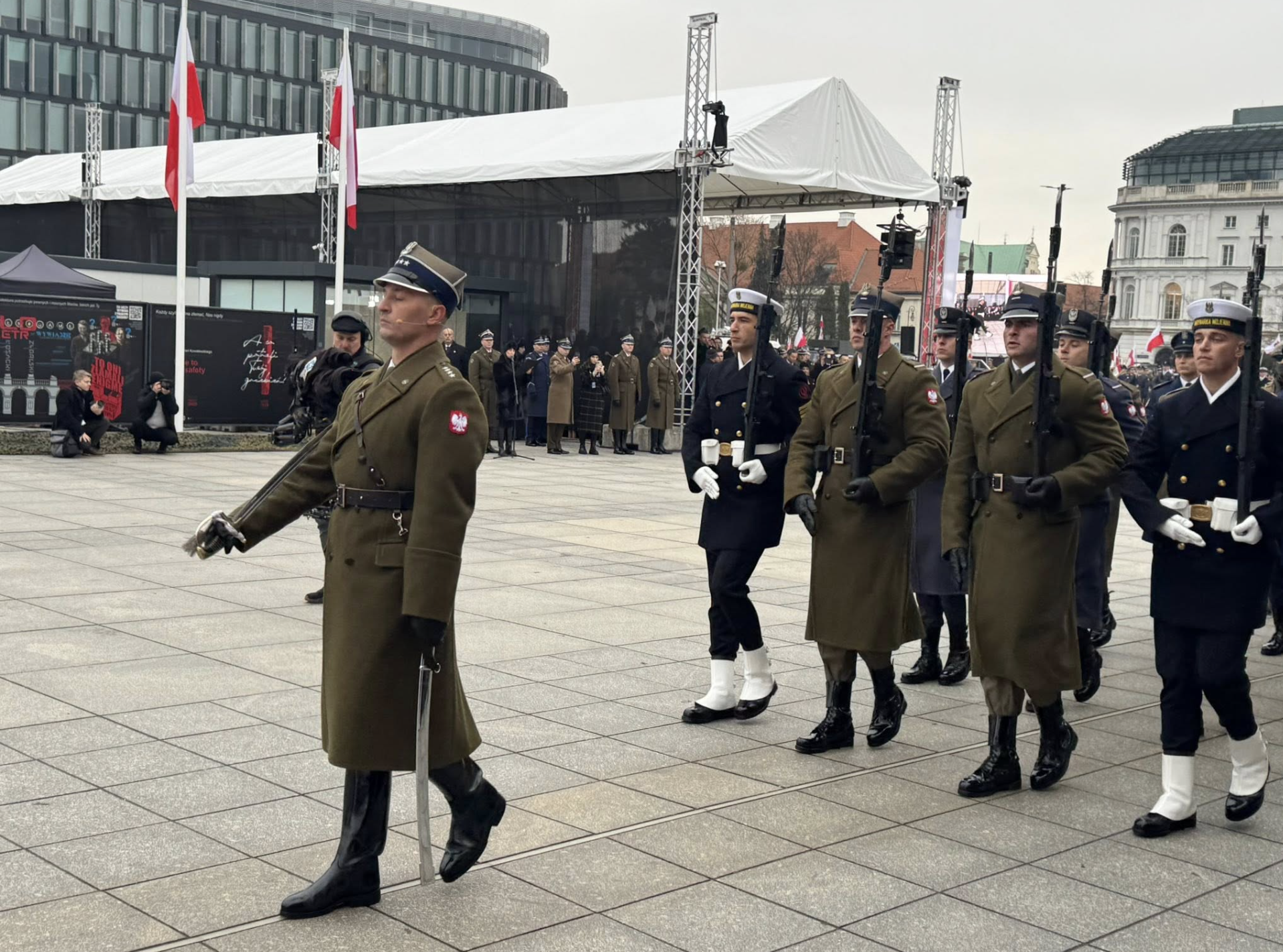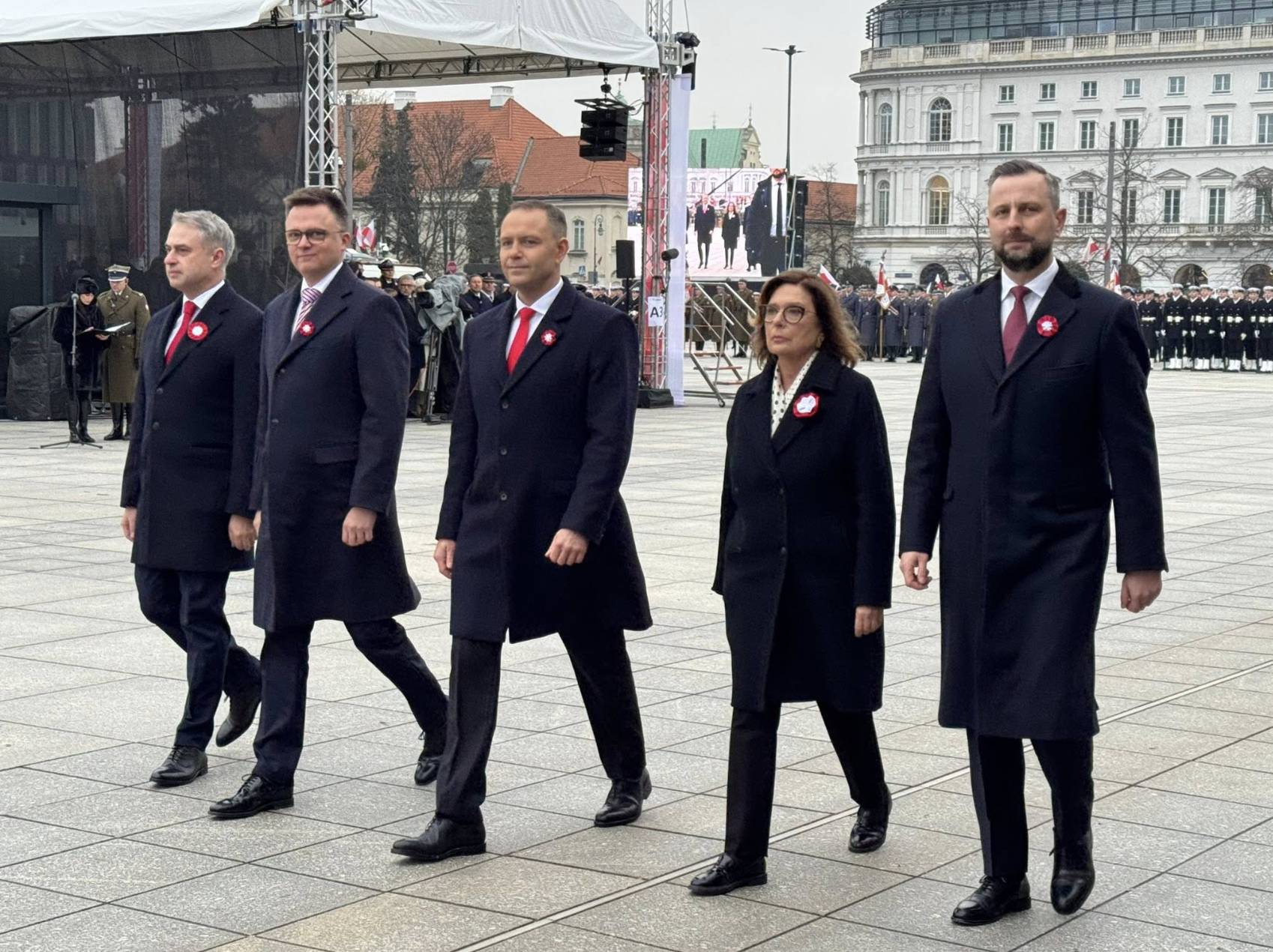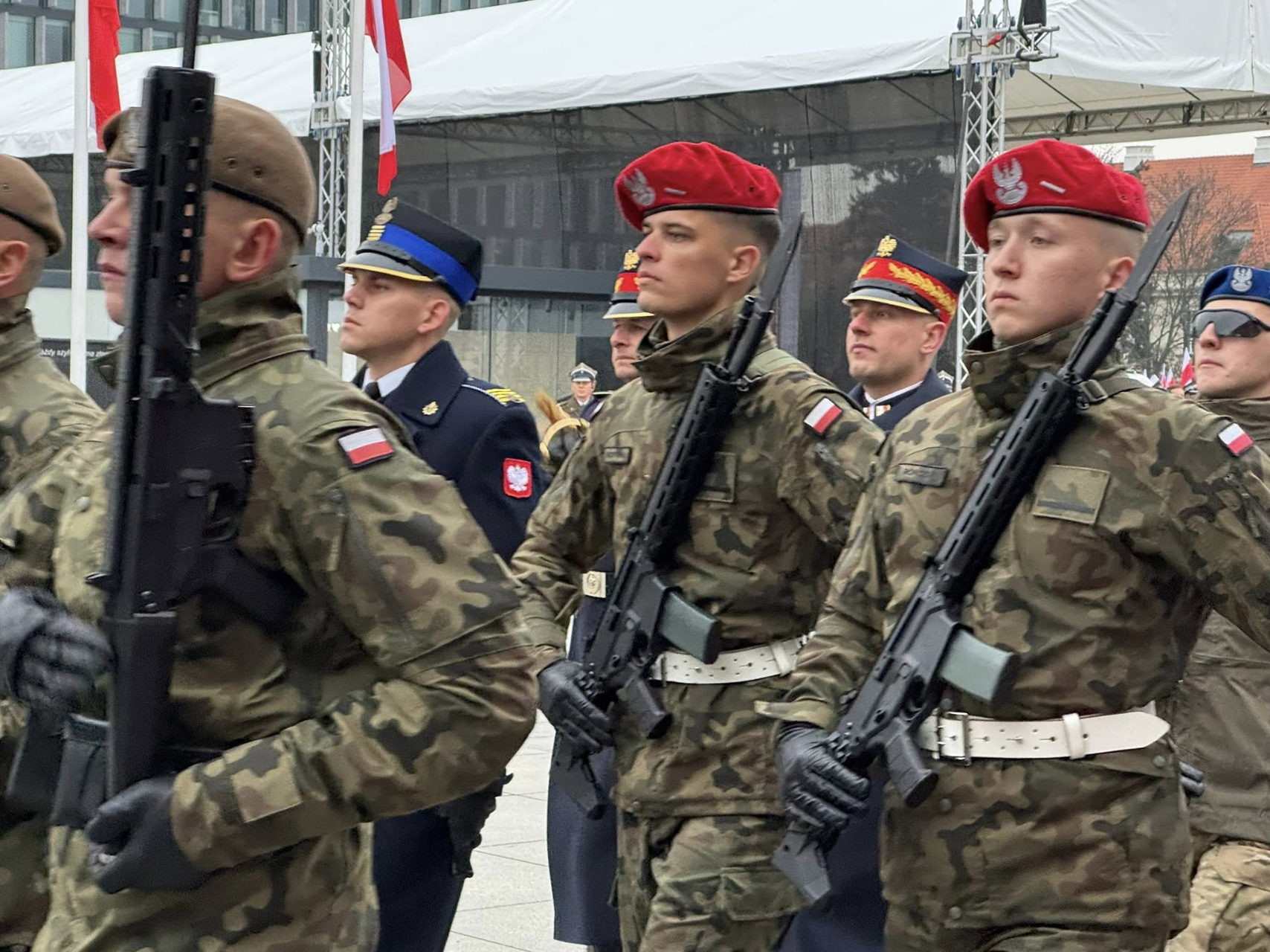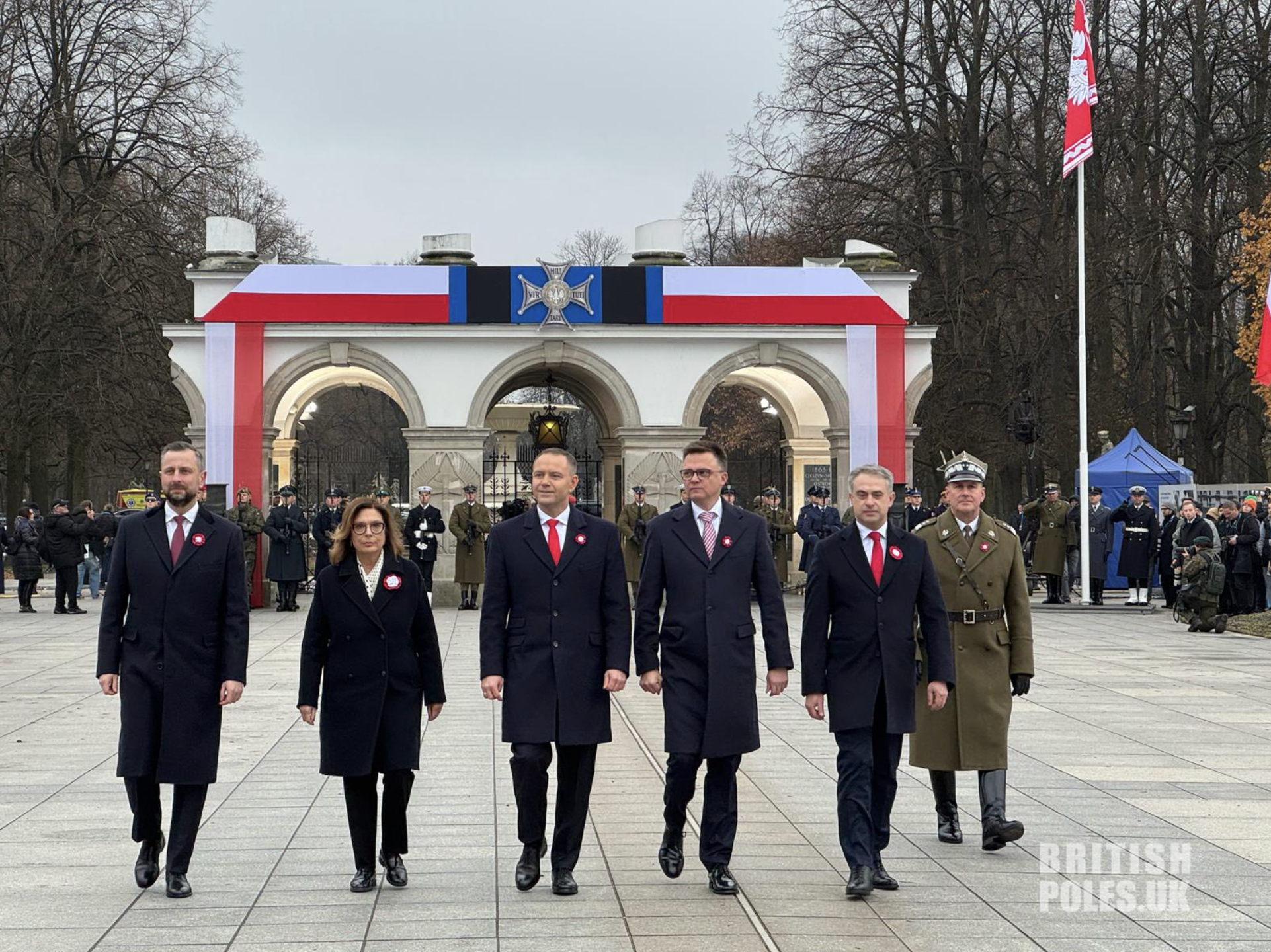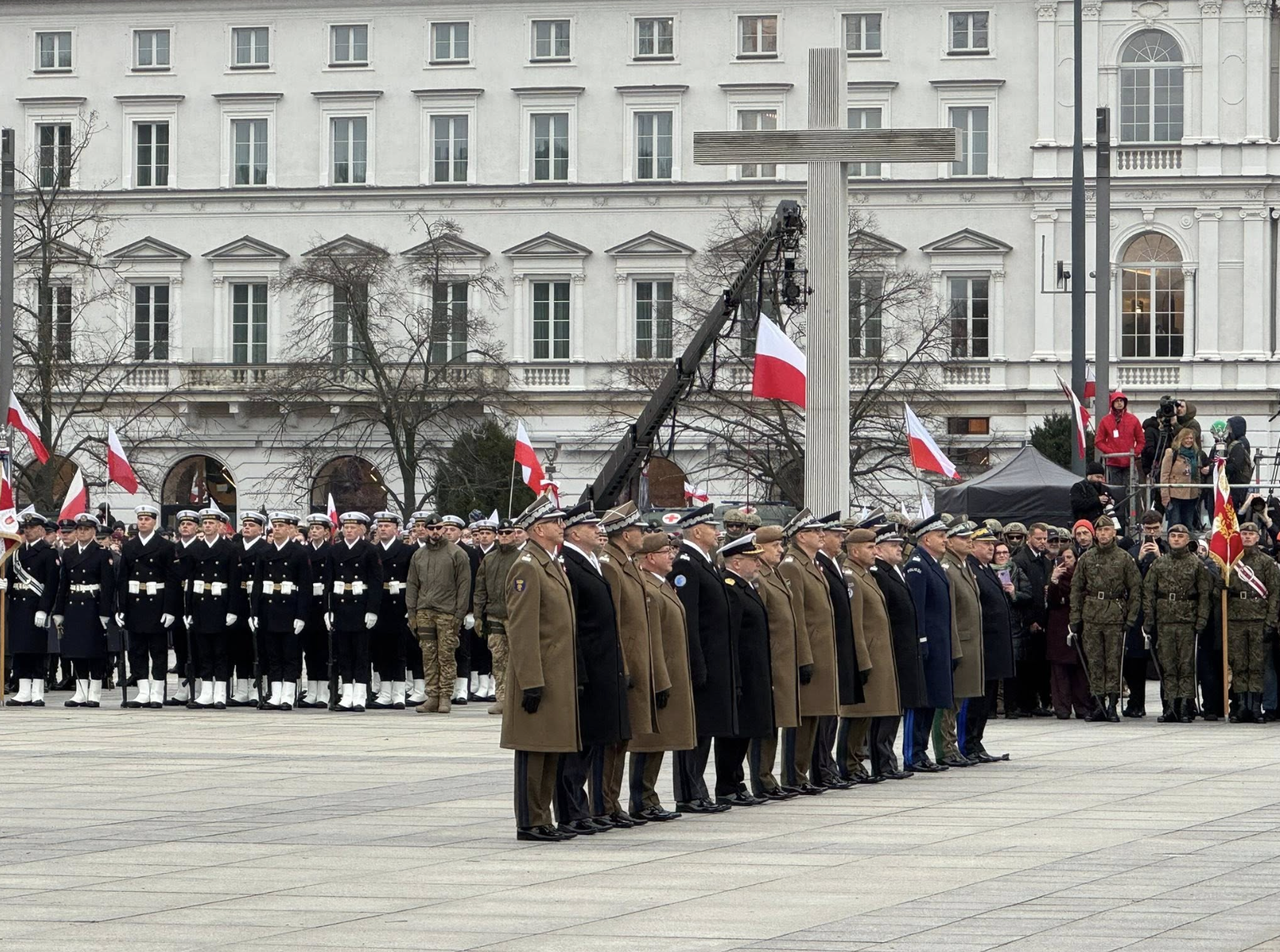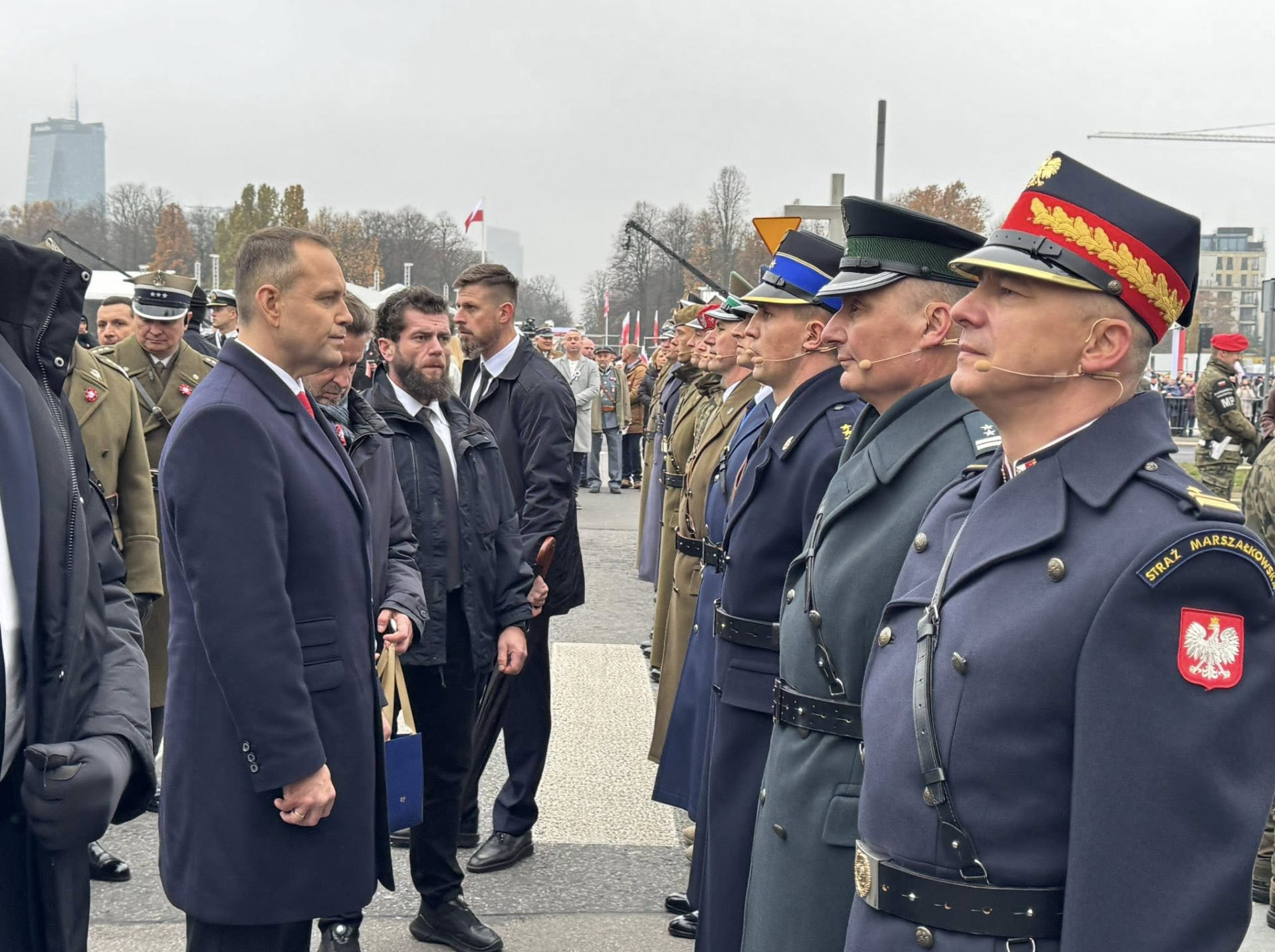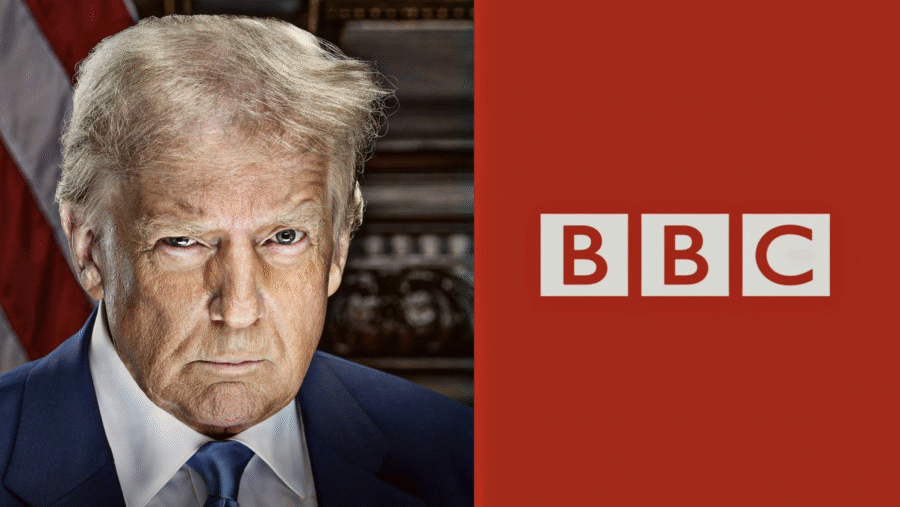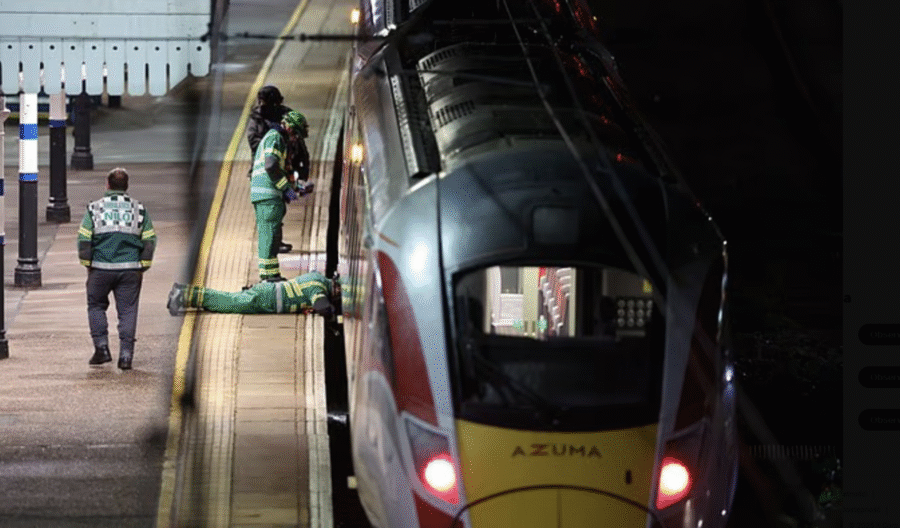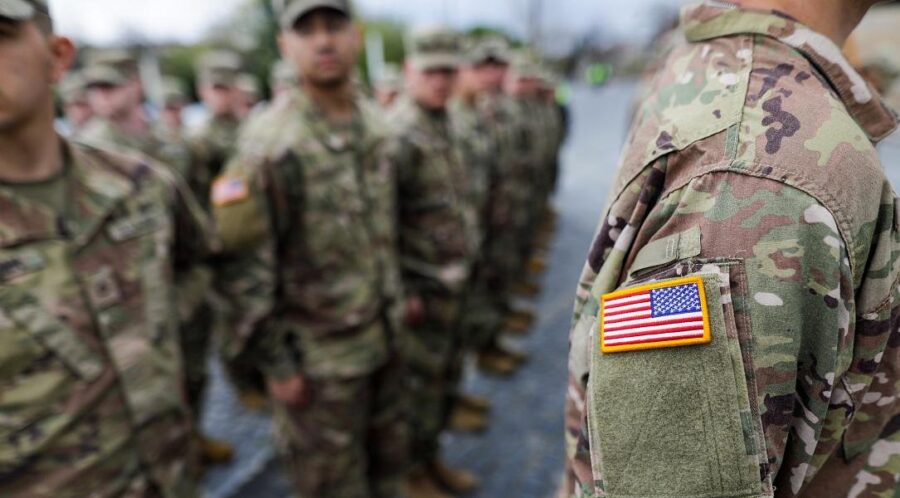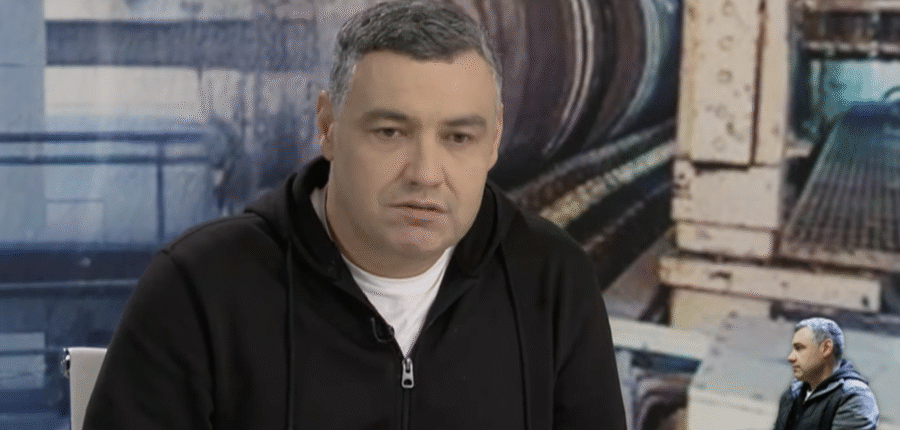On the occasion of the 107th anniversary of Poland regaining its independence, the President of the Republic of Poland, Karol Nawrocki, took part in the solemn celebrations of the National Independence Day at Piłsudski Square, where he delivered a speech to the Nation.
During the ceremony, attended by the highest state authorities, the national flag was raised on the mast, and the national anthem was played and sung. The Roll Call of Memory was read, and a national salute was given – 21 cannon salvos.
Below, we publish the full text of the speech.
”Compatriots,
Soldiers,
Officers,
Generals,
Honourable Mr Marshal,
Mr Prime Minister,
Chief of the General Staff of the Polish Armed Forces,
Dear Promoted to the Rank of Generals,
Thirty generations built a beautiful, glorious Poland, which then collapsed under the pressure of the three partitioning powers. Thirty generations contributed to the wonderful work known as the Commonwealth – Rzeczpospolita. Starting with Mieszko I and continuing through the crowning of Bolesław the Brave and the kings and restorers of the Piast dynasty, they all contributed to the great, mighty, beautiful and open Commonwealth – the First Republic of Poland, which was a powerful force in Europe and around the world.
It took only one century for Poland to fall under the force and pressure of the three partitioners. But after those thirty generations who built Poland, new generations emerged. Five generations of Poles were ready to fight for what was most important: Five generations of Poles ready for insurgent and insurrectionary combat in successive national uprisings. Five generations of Poles prepared to work hard, in the spirit of positivism, in the name of their common home, the reborn Republic of Poland.
Maurcy Mochnacki wrote that the most important thing is discerning one’s own existence. The thirty generations who fought for independence discerned their essence, identity and national values. This is why they were able to fight and work: they knew what their state was and what values it embodied. They also recognised the importance of Christian values, culture and national heritage. This gave meaning to the struggle for Polish independence. This was also thanks to the great Fathers of our Independence. Although they differed greatly from one another — from Józef Piłsudski to Roman Dmowski, Wincenty Witos, Wojciech Korfanty, Ignacy Daszyński and Ignacy Paderewski — they represented different social groups and wanted independence for all. They did not disappoint the five generations who worked for a free and independent Poland — our common home.
The beauty of 11 November 1918 lies in the fact that it was a time of great celebration, resulting from the efforts of many generations and the Fathers of our Independence. However, the independence that was achieved then brought not only great joy, but also an immense responsibility. Poland had to fight for its borders and withstand the Bolshevik advance from the east. This was only possible because the Polish soldier and peasant remained true to the „essence” once described by Maurycy Mochnacki: a deep devotion to national values and identity. The Internationale with its siren song failed to persuade the Polish peasant that national identity did not matter. The peasant wanted to die for all things Polish, and the Polish soldier wanted to die for Poland, for its white and red colours, and for its national essence. This is how independence was successfully defended.
And then came the responsibility weighing on the shoulders of the Second Republic of Poland, politically conflicted, much like our contemporary political scene. Despite its internal strife, the Second Republic never relinquished the aspirations of the entire national community: the Central Industrial Region, the port in Gdynia and the Polish zloty, which has been, is and will remain a symbol of Polish sovereignty.
Indeed, the Second Republic fought for its borders, repelled the Bolshevik invasion, and conflicted as it was, it never ceased to dream of a great Poland and of building the Central Industrial District and the port in Gdynia. On 11 November, this commitment to independence also brought us what I personally consider to be the Second Republic’s greatest success: raising a child in a Polish school who knew from beginning to end that they were Polish and had Polish responsibilities. Thanks to the Second Republic, the generations that followed never gave up their freedom and independence after 1939 and 1945, and thanks to them, we can live in a free and independent Poland today.
These are the great achievements of those who fought for our independence 107 years ago. Today, my Dear Ones, Mr Marshal, Madam Marshal, Prime Minister and Ladies and Gentlemen, we face a great responsibility. We must remember that Poland was independent and sovereign for only 31 years in the 20th century. For 69 years, it was either partitioned or subjected to atrocious occupation, and after 1945 it became a Soviet colony.
How will we promote Polish freedom and sovereignty in the 21st century? Will we fulfil these pledges and achieve this great success for Polish independence and sovereignty? Will the 21st century be a century in which we are free and independent for 100 years? Looking at over a thousand years of Polish history and the great work of the Fathers of Polish independence, I ask: where is our “essence”, our identity? Where are our Christian values, on which Poland was founded? Why must we witness and struggle to repel the surrogates of Christian values in Polish schools and the education system when these ideologies are foreign to us?
This is neither ours nor Polish, and the President of Poland will never allow us to become the peacock and parrot of nations once again, passively repeating whatever comes from the West. As a supporter of Poland’s membership of the European Union, I say this: Poland first, Poles first. A free, independent and sovereign Poland is our shared responsibility, and that is what this National Day is all about.
Today, as we see some Polish politicians ready to hand over Polish freedom, independence and sovereignty piece by piece to foreign institutions, tribunals and the European Union’s foreign agendas, what do we want to say to those who, with their blood, effort and labour, brought us independence on 11 November? All that blood, all that sacrifice, all that work – so that today we could understand that Poland is free and independent, and is no longer a colony.
Independence is a commitment, and both I, as President of Poland, and the Polish government are committed to it today.
Today, independence also means justice. Yes, Poles expect justice. They do not want political theatrics. They want to be able to see a doctor, receive treatment and pay less for electricity and groceries. Our independence, freedom and solidarity also entail social justice. On the occasion of today’s celebration, I, as President, will be making this demand.
Ladies and Gentlemen,
Our independence also means having the opportunity and ability to take advantage of the opportunities that the present day offers us. Thanks to the hard work of Poles since 1989, Poland is now the 20th largest economy in the world. President Donald Trump has invited the President of Poland to the G20 Summit. He invited me, but he also invited all Poles because it is you who have worked hard, developed your businesses and achieved this great economic success. Much to the delight of the Deputy Prime Minister and the Minister of National Defence, our great ally has declared that the American soldiers on Polish territory supporting the Polish army will remain there – which is also good news for the Republic of Poland.
Together with our American partners, we are ready for Poland to become an energy and gas hub for Central and Eastern Europe. Independence also means seizing opportunities and using them for the benefit of young people and our children because we are building a free and independent Poland for them. However, if we neglect public finances and create political spectacles instead of doing real work for the Republic of Poland, there may be no freedom or sovereignty.
But, my dear Compatriots, independence is above all our security. This is why I would like to congratulate the generals of the Polish Armed Forces, the Polish Army, the State Fire Service, the Police, and the Border Guard on their promotions today. I would like to express my great appreciation to all generals, soldiers and officers for their daily work in ensuring our security and the functioning of the Polish state. I want to tell you that even if some celebrities insult the Polish uniform with words that should never be used in public, especially against a Polish soldier, and even if the Polish court is unable to respond in accordance with Polish raison d’état, I, as President of Poland, on behalf of this nation –are you here, Nation? – I want you to know that Polish soldiers and officers are sacred. The Nation is with you, and we thank you for being here. Once again, I congratulate the Generals, and I would also like to thank the Minister of National Defence, the Deputy Prime Minister, and the Minister of the Interior for ensuring that the spirit of the national day prevailed and the agreement on these appointments has been forged, respecting all parties and all important institutions of the Polish state. Thank you, Prime Minister. Thank you, Minister.
Ladies and Gentlemen,
I see a beautiful, strong and proud Polish nation. Unfortunately, this beautiful, strong and proud nation has been plunged into political strife and discouragement. However, I firmly believe that what unites us will outweigh what divides us.
May God bless Poland!
Long live Poland!”
Source: Prezydent.pl
Photos: British Poles



